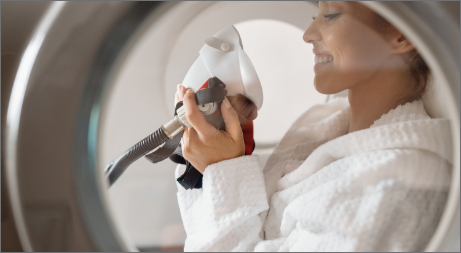Discover the transformative potential of Hyperbaric Oxygen Therapy (HBOT) in combatting Alzheimer’s at Vivacity, Sector 3, Rohtak, Haryana, India. Our specialized facility blends cutting-edge science with compassionate care, offering an environment that fosters vitality and cognitive enhancement. Experience the elevation of well-being as we harness the power of oxygen to invigorate the brain, promoting neuroplasticity and alleviating the debilitating effects of Alzheimer’s. Embark on a journey toward clarity and mental acuity with us today!
Hyperbaric HBOT: Oxygen Therapy for Alzheimer’s and Vivacity Restoration | Sector 3, Rohtak, Haryana, India
Revitalizing health through vivacity and hyperbaric wonders.
Hyperbaric Oxygen Therapy (HBOT) is a medical treatment that involves breathing pure oxygen in a pressurized chamber. This increases the amount of oxygen in the blood, which enhances the body's natural healing processes. By delivering high levels of oxygen to tissues that are deprived of it, HBOT promotes faster healing, reduces inflammation, and supports overall recovery. The therapy is administered in specialized hyperbaric chambers, either as a monoplace (single-person) or multiplace (multiple-person) unit, and is overseen by medical professionals to ensure safety and effectiveness. HBOT is utilized for various medical conditions and aims to improve patient health and well-being.


Alzheimer's disease reveals profound vivacity amidst cognitive decline.
Exploring the nuances of Alzheimer's disease requires a meticulous examination of its complex pathology and varied symptoms. Alzheimer's is a progressive neurodegenerative disorder characterized by memory loss, cognitive decline, and behavioral changes. The disease primarily affects older adults, with early symptoms often mistaken for normal aging. Pathologically, Alzheimer's is marked by the accumulation of amyloid plaques and tau tangles in the brain, which disrupt neuron function and lead to cell death. Genetic factors, such as mutations in the APOE gene, and environmental influences contribute to its development. Early diagnosis through cognitive tests and brain imaging is crucial for managing the disease. Current treatments focus on symptom management and slowing progression, as there is no cure. Ongoing research aims to uncover new therapeutic targets and improve early detection methods. Understanding Alzheimer's in-depth fosters better care strategies and hope for future advancements in treatment.
Hyperbaric therapy enhances oxygen levels potentially mitigating Alzheimer’s vivacity.
Hyperbaric Oxygen Therapy (HBOT) may offer benefits in managing Alzheimer's disease by enhancing brain health and function. HBOT involves breathing pure oxygen in a pressurized chamber, significantly increasing oxygen levels in the blood and brain tissues. This heightened oxygenation can reduce inflammation and oxidative stress, both of which are implicated in Alzheimer's progression. Additionally, HBOT can stimulate the growth of new blood vessels and improve overall blood flow to the brain, potentially enhancing cognitive function. Some studies suggest that HBOT might also promote the removal of amyloid plaques, a hallmark of Alzheimer's pathology. While HBOT is not a cure for Alzheimer's, it represents a promising adjunctive treatment that could help slow disease progression and improve quality of life for patients by supporting brain health and function.

Hyperbaric oxygen therapy offers vivacity against Alzheimer's cognitive decline through innovative HBOT techniques.
Hyperbaric Oxygen Therapy (HBOT) presents a promising adjunctive treatment option for Alzheimer's disease, leveraging its unique ability to enhance oxygenation and promote brain health. Through the use of a pressurized chamber, HBOT increases the amount of oxygen in the blood and brain tissues, which can play a crucial role in reducing inflammation and oxidative stress, both significant contributors to Alzheimer's progression. The therapy's potential to stimulate angiogenesis, or the formation of new blood vessels, ensures improved blood flow and nutrient delivery to brain cells, which can enhance cognitive functions and potentially slow down the degenerative processes associated with the disease.
Research indicates that HBOT might also assist in the removal of amyloid plaques, the abnormal protein deposits in the brain that are a hallmark of Alzheimer's pathology. By aiding in the clearance of these plaques, HBOT could help in mitigating some of the neurological damages caused by the disease. Furthermore, the therapy's impact on neuroinflammation and its ability to create a more favorable environment for brain cell survival and function provides a multi-faceted approach to managing Alzheimer's.
While HBOT is not a cure for Alzheimer's, its application could significantly improve the quality of life for patients by supporting overall brain health and function. Continued research and clinical trials are necessary to fully understand the extent of HBOT's benefits and to establish standardized treatment protocols. However, its integration into Alzheimer's treatment strategies holds promise, offering hope for slowing disease progression and enhancing the well-being of those affected by this challenging condition.
References
https://pubmed.ncbi.nlm.nih.gov/30215058/
